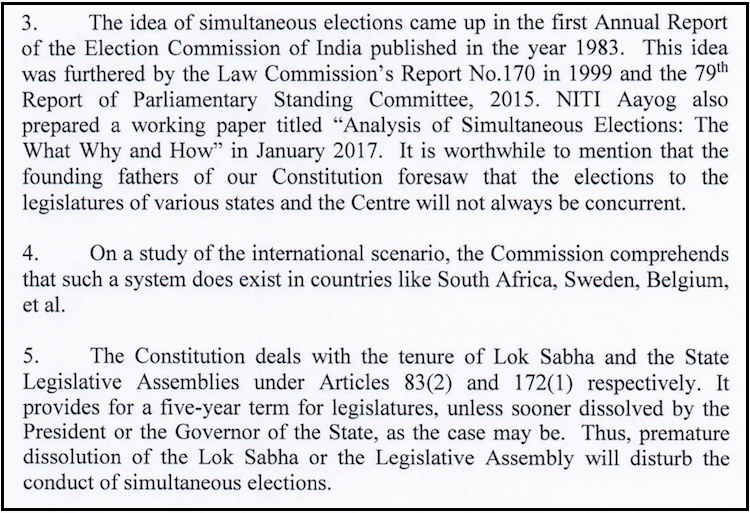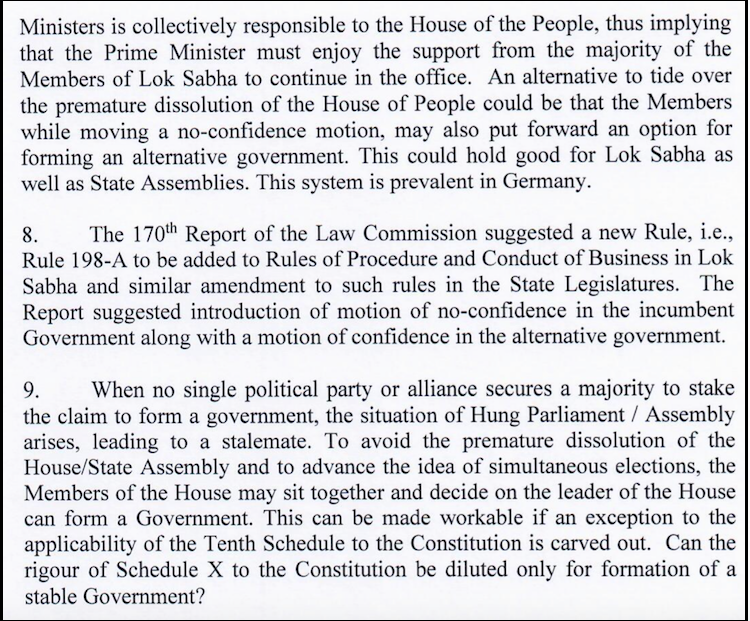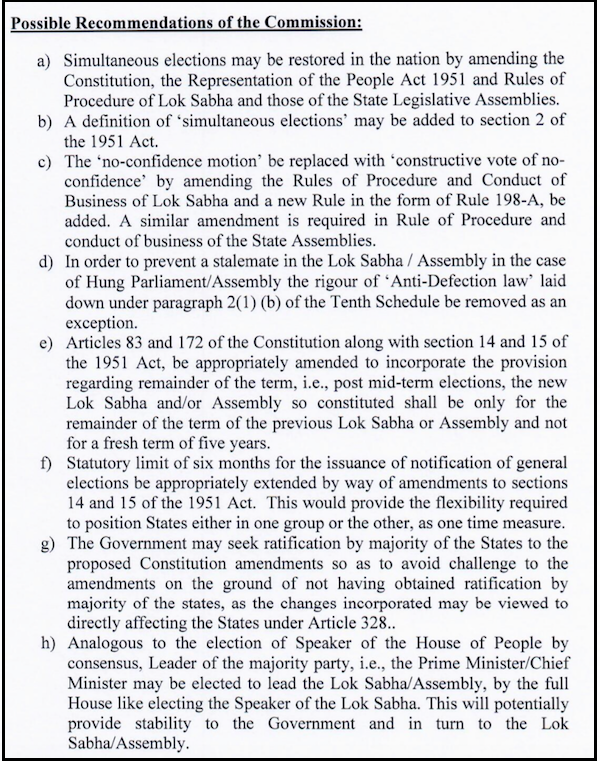[orc]The Law Commission has sought views of various stakeholders on its draft working paper on simultaneous Lok Sabha & Assembly elections. This is after the President, Prime Minister and the NITI Aayog spoke about simultaneous elections at various times.
Simultaneous elections to Lok Sabha & State Assemblies have been debated for quite some time now. It started with the 79th report of the Parliamentary Standing Committee on Personnel, Public Grievances, Law and Justice. The NITI Aayog on its part also released a discussion paper on the subject. The President of India also touched upon this subject in his joint address to the Parliament earlier this year. The Prime Minister also spoke about the advantages of simultaneous elections on multiple occasions in the past. Now, the Law Commission has sought the views of various stakeholders including general public, on its draft working paper ‘Simultaneous Elections – Constitutional & Legal Perspectives’.
Such a system exists in some Countries
In its summary note, the commission mentioned that the system of simultaneous elections exists in countries like South Africa. Sweden, Belgium etc. As noted previously by various other committees, the cycle of simultaneous elections was disrupted after the year 1967 when certain state assemblies were dissolved followed by the dissolution of the Lok Sabha in 1970. The commission in its note mentions that the founding fathers of the constitution did foresee that the elections to the Lok Sabha & State Assemblies may not always be concurrent. 
Should a No-Confidence motion be accompanied by a Confidence motion?
One of the major road blocks to simultaneous elections is the prospect of premature dissolution of Lok Sabha or an Assembly when government loses majority. The commission’s summary of the working paper mentions that a no-confidence motion in any government should also put forward an option for an alternative government, a system that exists in Germany. The 170th report of the law commission had suggested that a new rule be added to enable the introduction of a no-confidence motion along with the motion of confidence in an alternative government.

The commission also raises an important question in the context of hung parliament or assembly when the leader of the house is elected to form a government. That would mean members of the house voting beyond their party line (in some cases), which would automatically attract disqualification under the anti defection law (10th schedule of the constitution). One of the questions raised by the commission is about the dilution of the anti defection provisions for the purpose of a stable government.
Commission seeks views on the following recommendations
The commission in its summary note has put out a list of recommendations on which views are sought. The recommendations include amendment to the Constitution, to the Representation of the People Act 1951, amendment of the relevant rules in the Lok Sabha and State assemblies, electing a leader of the house similar to the election of the speaker among other things.

Suggestions to be made by 08th May
Suggestions/views on the summary note can be sent via post to the Member Secretary, Law Commission of India, 4th Floor, Lok Nayak Bhavan, Khan Market, New Delhi – 110033. The same can also be emailed at LCI-DLA@NIC.IN latest by 08th May 2018.


